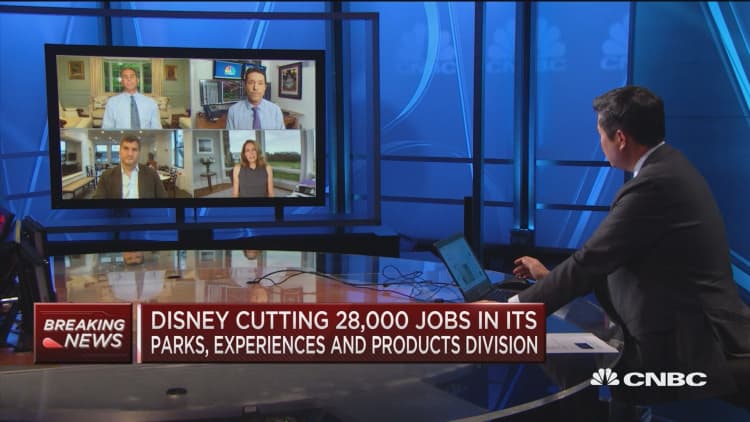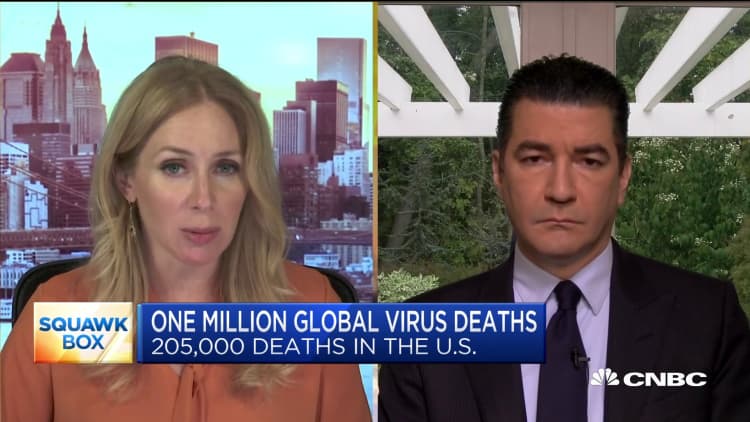The global death toll of the coronavirus has now crossed 1 million people, nine months after the virus was first discovered in Wuhan, China. CNBC plotted the insidious path the coronavirus took around the world and examined how the U.S. economic response to the coronavirus pandemic stacks up to the rest of the world. Health workers shared stories from the front line, and a medical historian broke down how this pandemic compares to the 1918 flu.
Here are some of the major developments on Tuesday:
- Democrats hope revised $2.2 trillion relief bill can rejuvenate talks
- Gottlieb worries the U.S. is heading toward 'most dangerous season'
- Government increases competition for contract after CNBC report
- New York sees clusters pop up in Orthodox Jewish communities, governor says
- New York City misses out on billions of tourism dollars as coronavirus keeps Broadway dark
The following data was compiled by Johns Hopkins University:
- Global cases: More than 33.46 million
- Global deaths: At least 1 million
- U.S. cases: More than 7.16 million
- U.S. deaths: At least 205,547



